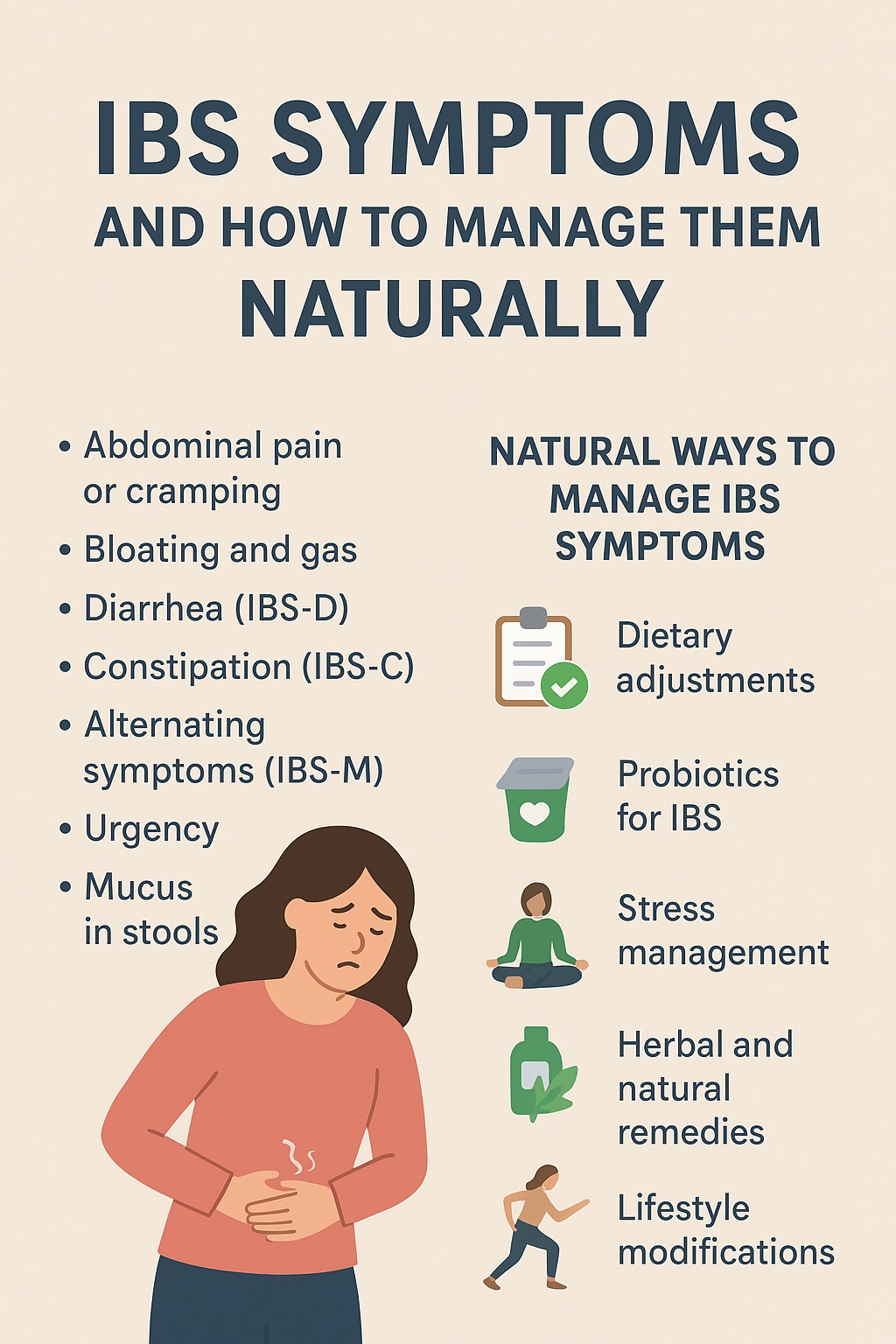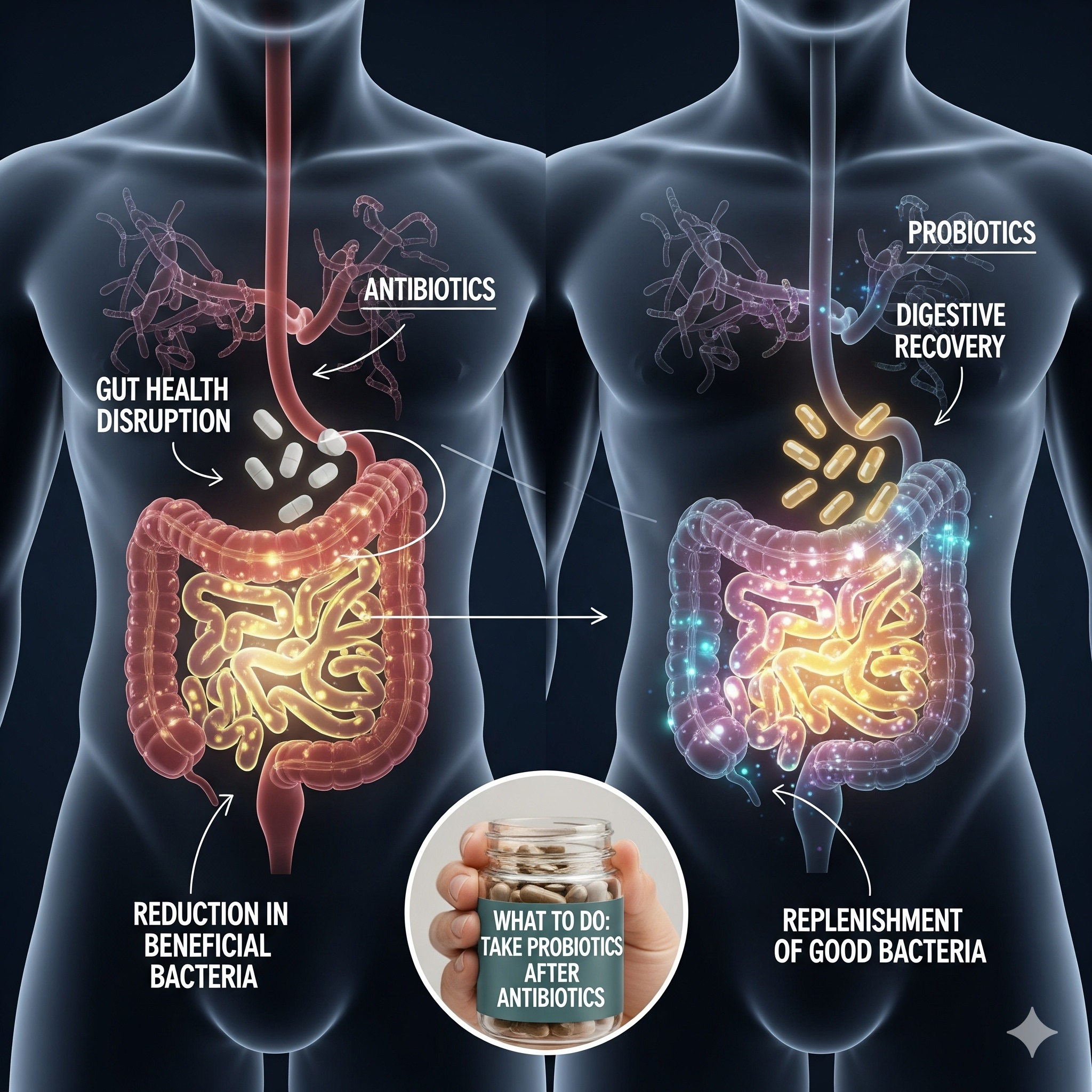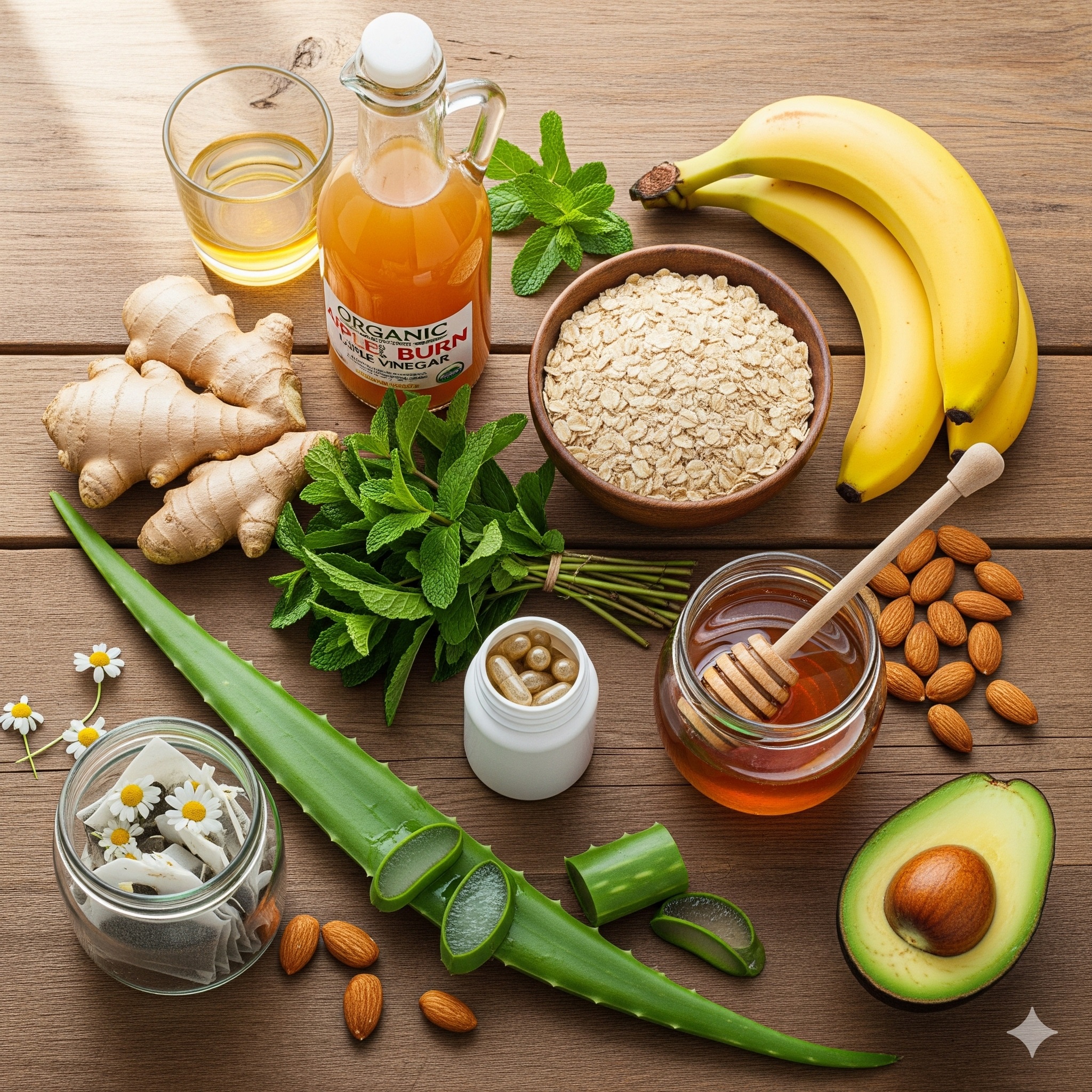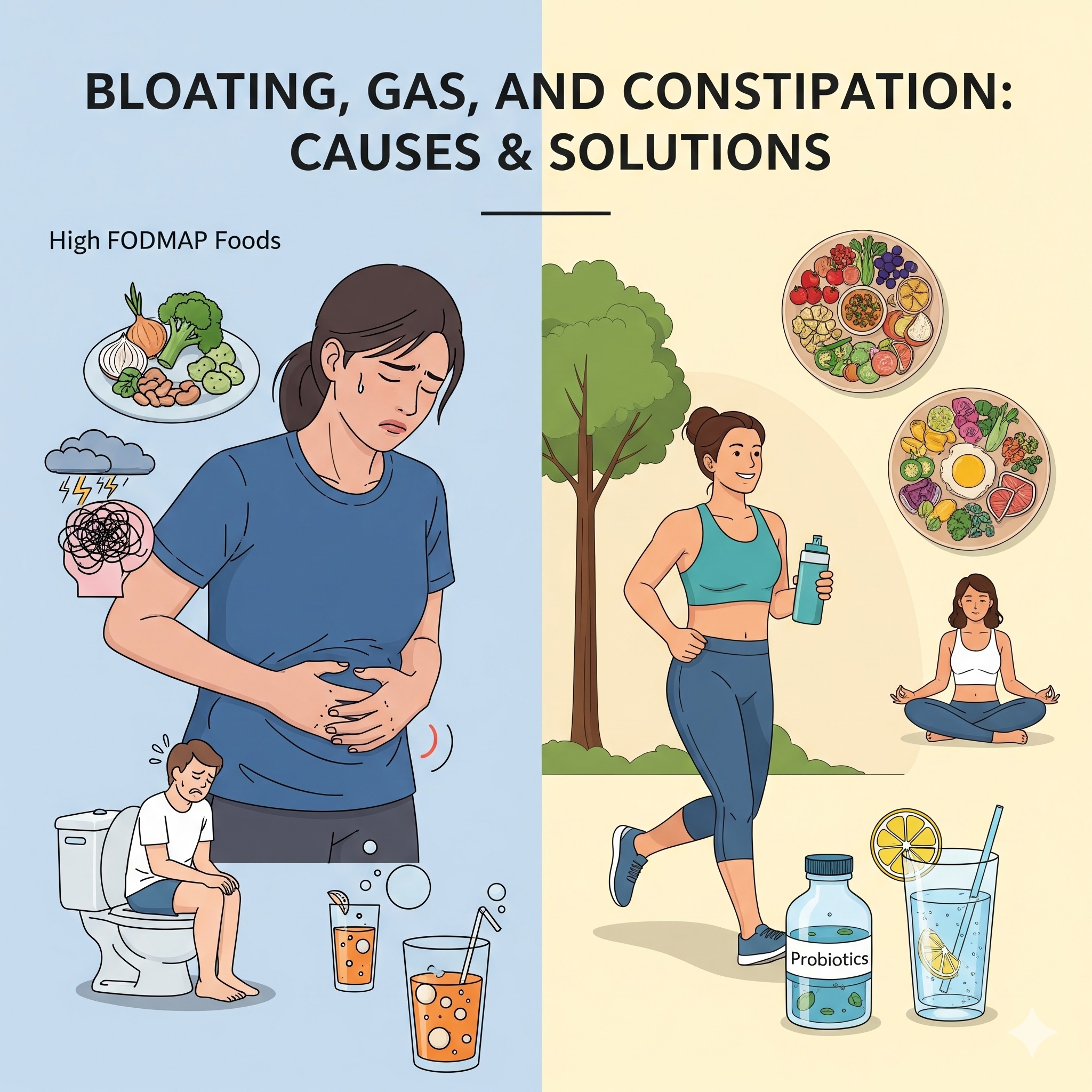Irritable Bowel Syndrome (IBS) is one of the most common digestive conditions worldwide, affecting millions of people each year. While it does not cause permanent damage to the intestines, it can significantly affect quality of life. Understanding IBS symptoms and exploring natural management strategies can help restore digestive health, improve comfort, and support long-term gut wellness.
What Is IBS?
IBS, or Irritable Bowel Syndrome, is a functional gastrointestinal disorder. This means there is no visible damage in the digestive tract, but symptoms occur due to how the gut functions. IBS often involves a mix of abdominal discomfort, changes in bowel habits, and sensitivity in the digestive system.
Common IBS Symptoms
IBS symptoms vary from person to person, but the most common include:
- Abdominal pain or cramping → Often relieved after a bowel movement.
- Bloating and gas → Feeling full or swollen, even after small meals.
- Diarrhea (IBS-D) → Frequent, loose stools.
- Constipation (IBS-C) → Difficulty passing stools or infrequent bowel movements.
- Alternating symptoms (IBS-M) → A combination of both diarrhea and constipation.
- Urgency → Sudden, strong need to use the bathroom.
- Mucus in stools → Some people notice a whitish mucus with bowel movements.
👉 While IBS is uncomfortable, it does not cause intestinal damage like Crohn’s disease or ulcerative colitis.
What Causes IBS?
The exact cause of IBS is unknown, but several factors may contribute:
- Abnormal gut motility (fast or slow movement of the intestines).
- Increased gut sensitivity (heightened pain signals in the digestive tract).
- Imbalances in the gut microbiome.
- Stress and mental health conditions.
- Certain foods and dietary triggers.
- Hormonal fluctuations (IBS is more common in women).
Natural Ways to Manage IBS Symptoms
While there is no permanent cure, many people find relief with natural IBS treatment approaches. These methods focus on restoring digestive health and promoting overall gut wellness.
1. Dietary Adjustments
Food plays a major role in managing IBS.
- Low FODMAP diet: Avoid foods high in fermentable carbs (like beans, onions, garlic, apples, and dairy) which can worsen bloating and gas.
- Increase fiber carefully: Soluble fiber (oats, flaxseeds, psyllium husk) helps with constipation, but too much fiber can worsen symptoms.
- Avoid triggers: Common triggers include caffeine, alcohol, fatty foods, spicy meals, and artificial sweeteners.
2. Probiotics for IBS
Probiotics can improve gut microbiome balance and reduce symptoms like bloating, diarrhea, and constipation.
- Lactobacillus and Bifidobacterium strains are the most studied for IBS.
- They help regulate gut motility, strengthen the gut barrier, and reduce inflammation.
- Probiotics can be taken through supplements or foods like yogurt, kefir, sauerkraut, and kimchi.
👉 Regular use of probiotics for IBS may provide relief, but results vary per individual.
3. Stress Management
Since stress directly impacts the gut-brain axis, managing stress is a crucial part of IBS treatment.
- Meditation and deep breathing exercises.
- Yoga and light physical activity.
- Cognitive Behavioral Therapy (CBT) for stress-related IBS.
- Journaling or relaxation techniques before meals.
4. Herbal and Natural Remedies
Some natural remedies have shown promise for digestive health in IBS patients:
- Peppermint oil: Helps relax gut muscles, reducing cramping.
- Chamomile tea: Soothes the digestive system and lowers stress.
- Ginger: Supports digestion and reduces bloating.
- Turmeric: Anti-inflammatory properties may improve gut comfort.
5. Lifestyle Modifications
- Stay hydrated: Drink enough water to help regulate digestion.
- Exercise regularly: Light to moderate exercise supports bowel movements and reduces stress.
- Sleep well: Poor sleep worsens IBS symptoms.
- Eat smaller, frequent meals: Large meals can trigger discomfort.
When to See a Doctor
Although IBS is generally manageable, seek medical advice if you experience:
- Unexplained weight loss.
- Severe or worsening abdominal pain.
- Blood in stool.
- Symptoms that disrupt daily life.
A healthcare provider can help rule out other digestive conditions and guide treatment options.
Conclusion
IBS can be challenging, but with the right strategies, it is possible to manage symptoms naturally. By focusing on diet, stress reduction, lifestyle changes, and probiotics for IBS, you can restore balance and promote lasting digestive health.
Remember, each person’s IBS journey is unique. Experiment with natural approaches, listen to your body, and consult a healthcare professional when needed. With patience and consistency, you can achieve better gut wellness and regain control over your daily life.




